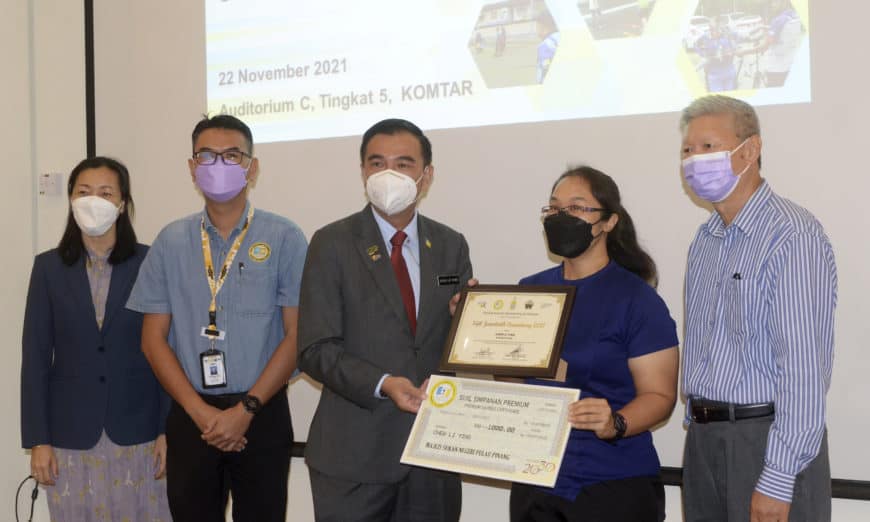THE Penang Judo Association has come up with a programme called the ‘Olympic Dream’ to groom its judokas for the Paris Olympics in 2024 and the Los Angeles Olympics in 2028.
Coach Chew Li Ying, who was recently named the women’s winner of the Penang Coach Excellence Award 2021, said she hoped the ‘Olympic Dream’ programme could infuse more interest to make judo a popular sport in Malaysia, like in Japan and a number of European countries.
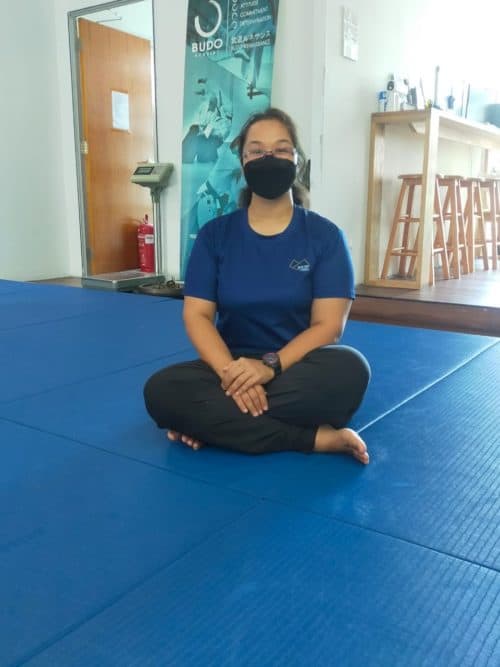
“This Olympic Dream programme is drawn up by our sensei (teacher) Justin Khoo and will be overseen by our head coach Md Nasriq.
“It’s a long-term programme aimed to prepare our judokas for the Olympics in 2024 and 2028.
“There are a lot of challenges and this programme will need the support of the Malaysian Judo Federation and the Olympic Council of Malaysia.
“Overseas competitions will require a lot of money as well as manpower. What competitions to take part will also be carefully planned to help the players collect points for the Olympic qualification.
“To help the players reach that level, a host of professionals, like nutritionist and physiotherapist, is also needed to support the team,” Chew, 34, told Buletin Mutiara in a recent interview when asked about the future plans for judo development in Penang.
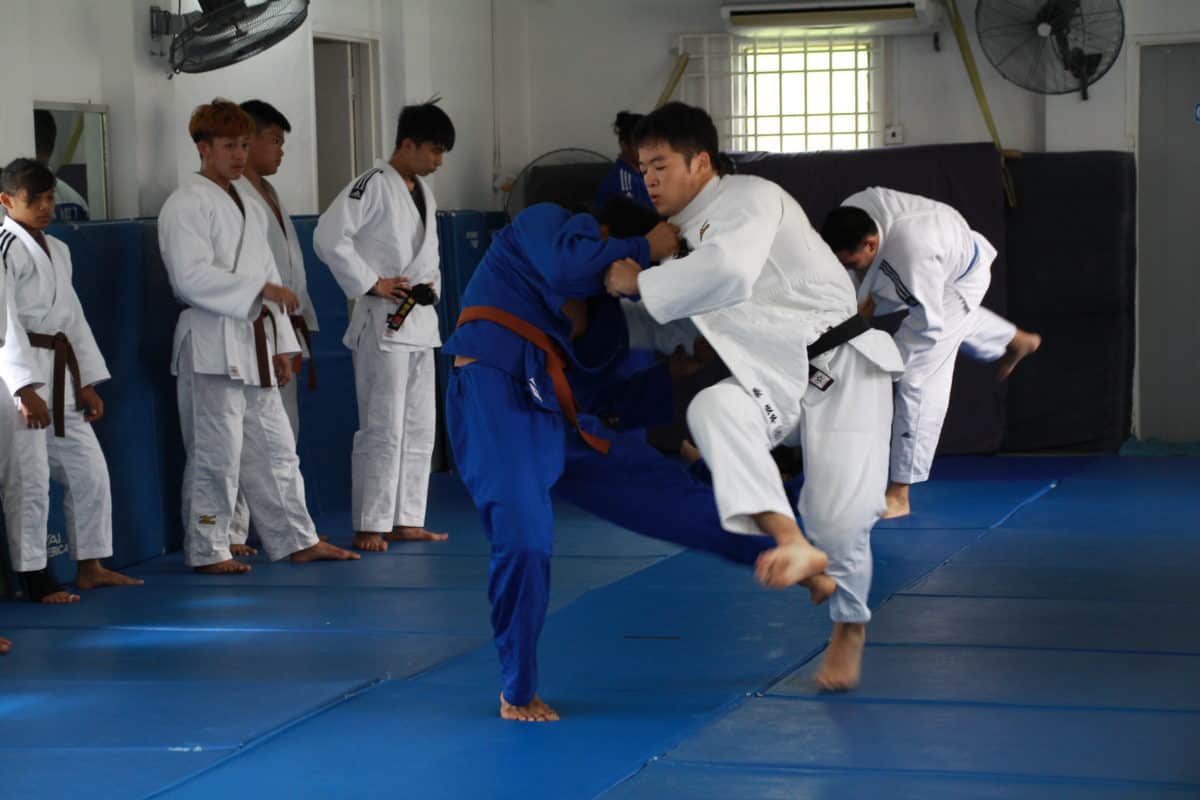
Justin, whose father (Johnny Khoo) has played a pivotal role in the development of judo in the state for over four decades, is currently the vice-president of the Penang Judo Association.
Chew, who has been coaching the state team for the past 13 years, said one of the biggest problems coaches encountered is not having enough students.
“We hope to have more students to impart our knowledge to them. Last time we went to schools to promote judo. Out of 10 students who came, only one or two stayed on with us.
“When the students finish high school, they would usually give up the sport after going to university. So, we often lose the talented students.
“In Japan, it is different. They have judo in many universities whereas in Malaysia, we have only one or two such universities.
“Furthermore, the Japanese government will also help the students find employment after their graduation.
“Here in Penang, it is also a good move by the state government to have started the Penang Athletes Career Education (PACE) programme to help our own sportsmen and sportswomen find employment,” said Chew, who also likes hiking and travelling.
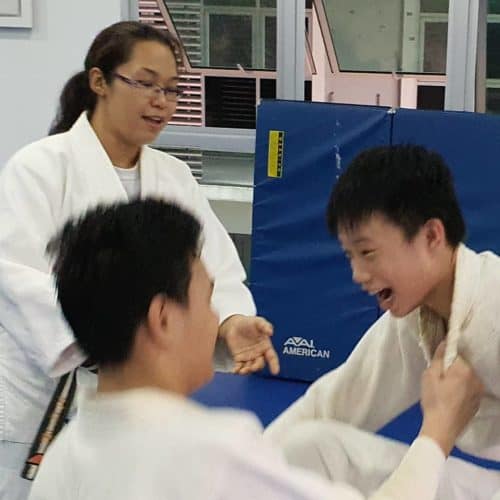
Chew said some students only want to learn judo and not take part in competitions.
There are also girls, she added, who are just sent by their parents to learn judo for self protection as they are worried about bullying.
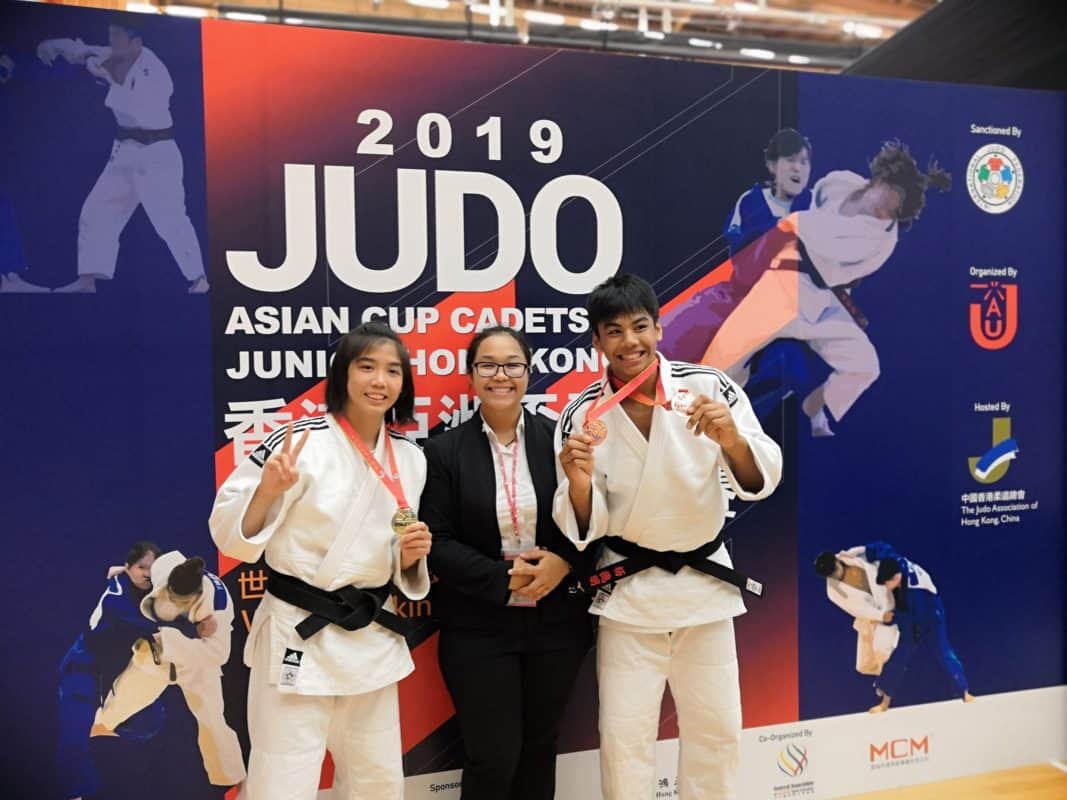
“What we do is that we encourage them to love the sport first. After they have joined us and liked the sport, they are inspired when they see their friends train hard and win competitions. Some of them later decided to participate in competitions.
“Judo is actually very suitable for everyone, including the kids. It can be fun for the kids to be able to throw others who are physically bigger than them to the floor without much energy.
“I encourage parents to send their kids to learn this martial art. Rather than just let them play computer games and stay at home, they can help build the kids’ strength, confidence and self discipline through judo.
“You can see the difference in their thinking and action after they have joined us for a few months.
“For example, our kids know that when they come into the dojo (training centre), they know where to put the shoes properly; bow before and after each training session to show respect for their teachers and fellow judokas, and fold their own uniform,” Chew explained.
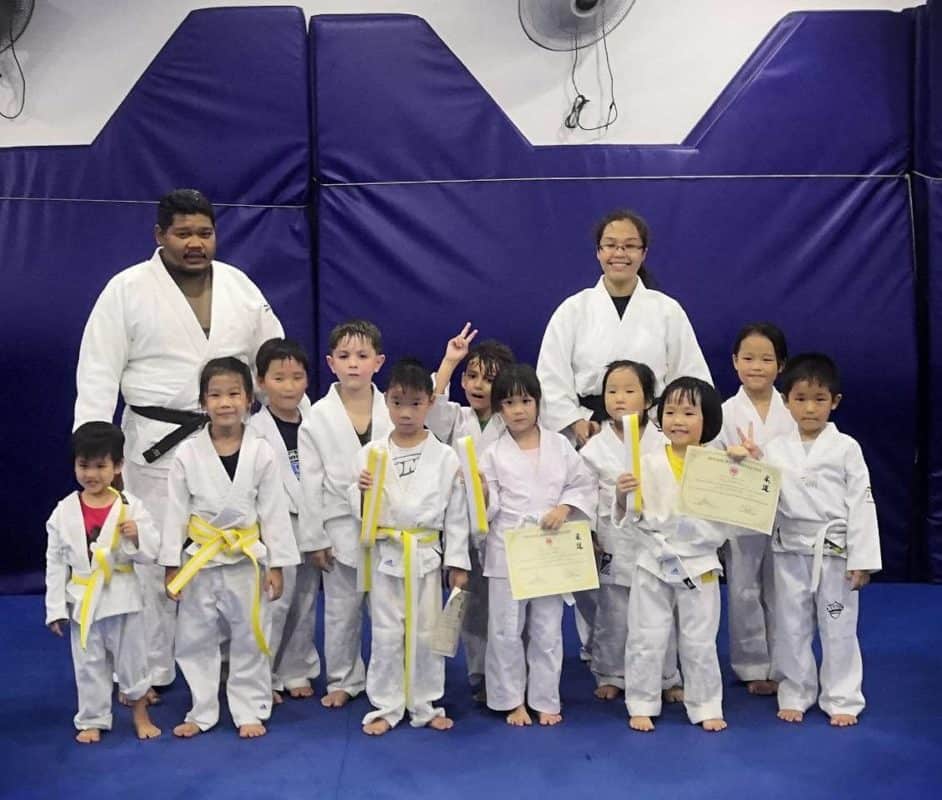
She vividly remembers how she got hooked on judo at 16 years old when she was studying at Penang Chinese Girls High School.
A judo instructor came to her school one day to promote the sport. Chew and five other classmates who were then into taekwon-do gave judo a try. Eventually all dropped out and returned to taekwon-do except for Chew.
Her parents did not mind her taking up taekwon-do or judo as long as she did not “do anything bad.”
Train hard she did six days per week. It was no surprise that she went on to represent Penang in her first Sukma in 2004 in Negri Sembilan where she was unplaced.
Then, in Trengganu Sukma in 2008, Chew captured the gold medal in the -78kg shiai. And in her third and last Sukma appearance in 2010 in Melaka, Chew again won the gold in the -78kg shiai and a silver medal in the ju no kata.
Chew was also the five-time national junior champion and the four-time heavyweight shiai champion (-70kg and -78kg).
She also represented Malaysia in two SEA Games, in Thailand in 2007 and in Indonesia in 2011. She finished fifth in the kata event in both championships.
An anterior cruciate ligament (ACL) tear on her right knee in 2017 later forced her to give up competitive judo. She later underwent the knee operation.
She then took up part-time coaching, assisting her sensei Md Nashriq Md Nasir before becoming a full-time coach in 2010. Chew is in charge of the kata judokas while Md Nashriq focuses on the shiai judokas.
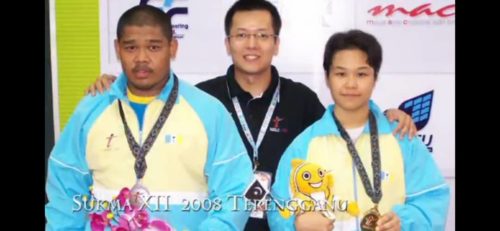
Together they formed a strong combination, leading their charges to win two golds in the Kuala Lumpur Sukma in 2013 and a record six golds in the Perak Sukma in 2018, four of which came from shiai and two from kata.
“One main reason the Penang team did extremely well in the 2018 Sukma was because the association invited some Japanese university students to come over here to spar with our judokas. We cannot send a full team there because it is expensive. So, in the Sukma competition, our judokas were already confident,” said Chew, a third-dan black belt holder in Malaysia.
But the coaching programmes by Md Nashriq and Chew were thrown upside down in the past two years due to the Covid-19 pandemic.
As judo is a contact sport, they had to resort to online coaching via Google meet because of the standard operating procedures (SOPs).
Now that physical training has been allowed, about 30 kids have returned to the training centre at Budo Academy, C-1-1 Vantage Desiran Tanjung in Tanjung Tokong. Previously, as many as 80 children attended class.
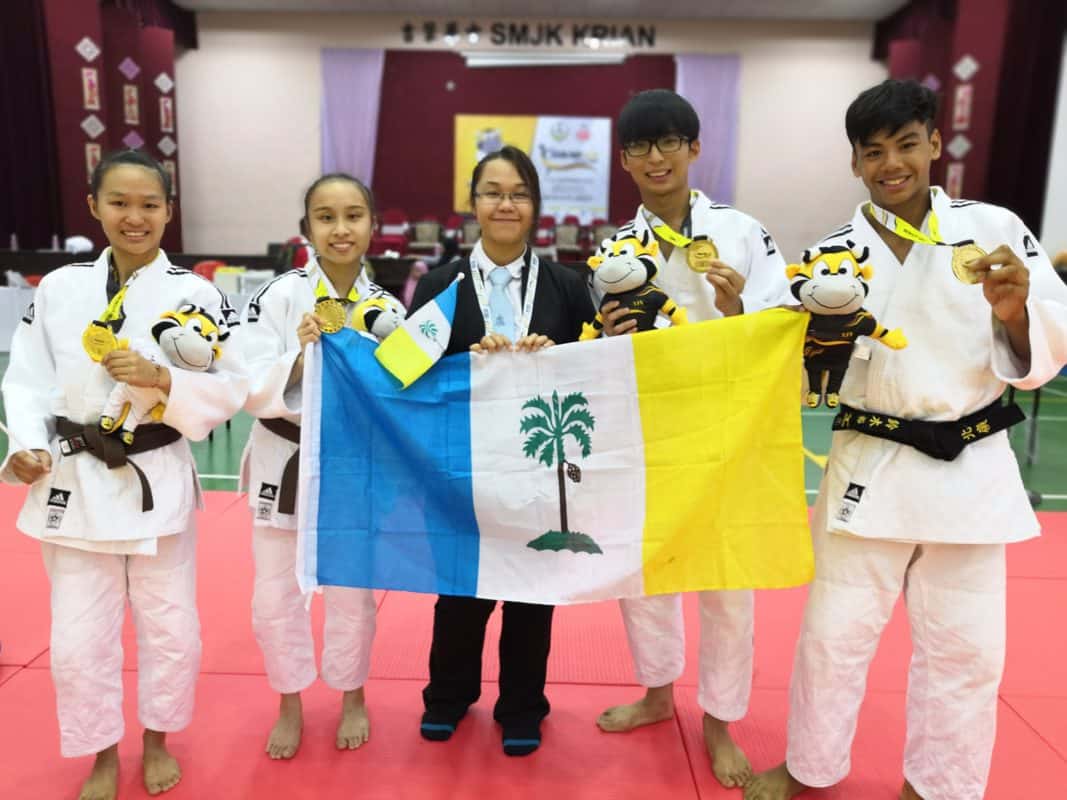
There may be no judo event in the coming Sukma to be hosted by Kuala Lumpur next year. If that happens, Chew said they would prepare the younger players for future Sukma and the senior ones for the SEA Games and Asian Games.
Penang has produced several talented judokas. Six of them are now in the national team. They are Amir Daniel Abdul Majeed (national junior rank 1 in men – 73kg), Tan Tze Ning (national junior rank 1 in men – 90kg), Kamini Sri Segaran (national senior rank 1 in women – 57kg), Goh Xuan Le (national senior rank 1 in women – 52kg), Tan Kei Yi (national senior rank 1 in ju no kata), Siti Nur Aisyah Dato Adzmi (national senior rank 1 in ju no kata).
Well, the Olympic Dream is for them as well as other talented judokas to chase.
Story by K.H. Ong
Pix by Edmund Lee and courtesy of Chew Li Ying

